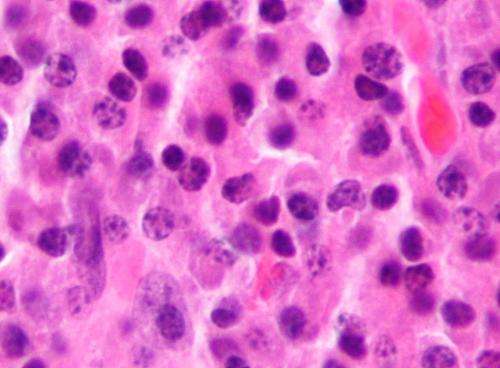Innovative Marker FXYD2 Enhances Identification of Functional Stem Cell-Derived Islets for Diabetes Treatment

A new discovery of the FXYD2 marker improves the identification of functional stem cell-derived islets, advancing diabetes cell therapy accuracy and safety.
Over half a billion individuals worldwide grapple with diabetes, a condition that can lead to severe complications such as stroke, kidney failure, cancer, and Alzheimer’s disease. Central to this disorder is the dysfunction of pancreatic islets—tiny organ-like structures responsible for blood sugar regulation—in both autoimmune Type 1 diabetes and stress-induced Type 2 diabetes. Replacing damaged islets with lab-generated, functional equivalents presents a promising therapeutic approach. However, progress has been hindered by the lack of reliable markers to identify truly functional, stem cell-derived islets, crucial for consistent and effective clinical application.
In a recent study published in Nature Communications, Dr. Eiji Yoshihara of The Lundquist Institute and UCLA led his team to discover a pivotal marker, FXYD2, which signifies the functional maturity and heterogeneity of stem cell-derived islet organoids. This discovery is a significant advancement in the field, enabling scientists to distinguish between high-quality, therapeutically effective islets and subpar ones, thus improving quality control during production.
The research builds upon previous work where Dr. Yoshihara's team developed immune-evasive, human-like islet organoids from pluripotent stem cells. Although this laid the groundwork for potential diabetes cures, variability in the quality of generated islets limited clinical translation. The current challenge was to evaluate not just insulin production but the functional robustness of these cells.
To tackle this, the team analyzed over 200,000 single-cell RNA sequencing datasets, uncovering a common set of dysregulated genes, including those involved in mineral absorption pathways controlled by FXYD2. They found that FXYD2, a membrane protein, not only serves as a marker of islet cell maturity but also actively influences gene expression critical for β cell function and maturation. FXYD2 localizes to the cell membrane, forming a signaling complex that enhances downstream signaling pathways and acts as a signal extender.
Further experiments revealed a strong correlation between FXYD2 expression and insulin secretion capacity. The researchers were able to categorize insulin-producing cells into FXYD2-high and FXYD2-low groups. Only FXYD2-high cells demonstrated the ability to reverse severe hyperglycemia in diabetic models, establishing FXYD2 as a functional quality marker.
“Our findings provide a crucial tool for functional selection in stem cell-based islet therapy, addressing the heterogeneity issue and paving the way for safer, more consistent cell therapy products,” explained Dr. Yoshihara. First author Clarissa Tacto added, “While insulin expression is important, co-expression with FXYD2 indicates higher therapeutic efficacy in glucose regulation.”
This breakthrough offers a more predictable pathway toward regenerative treatments for diabetes by enabling precise selection of transplant-ready, functionally mature islets, enhancing prospects for clinical success.
Stay Updated with Mia's Feed
Get the latest health & wellness insights delivered straight to your inbox.
Related Articles
Innovative Approach Enhances Brown Fat Activity to Boost Calorie Burning and Reduce Obesity in Mice
Researchers have discovered a new pathway involving peroxisomes and ACOX2 that enhances brown fat's capacity to burn calories, offering promising solutions for obesity treatment.
Fish Oil Supplements May Not Be Effective for Certain Cancer Patients
New research highlights the importance of genetic factors like ALOX15 in determining the effectiveness of fish oil supplements for cancer prevention. Learn how omega-3 fatty acids interact with enzymes to influence tumor growth.
Innovative Approach Using Iron to Target Multiple Myeloma Cells
Duke University researchers have discovered that inhibiting the enzyme STK17B can trigger ferroptosis in multiple myeloma cells, offering a new promising treatment strategy to overcome drug resistance and improve outcomes for patients.



